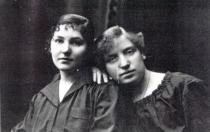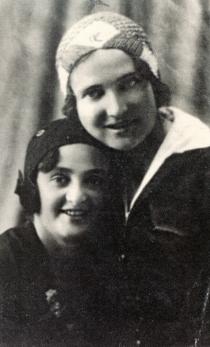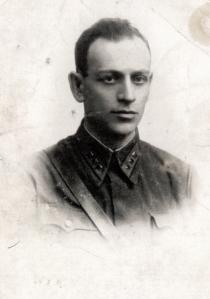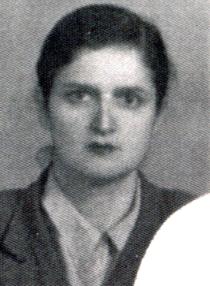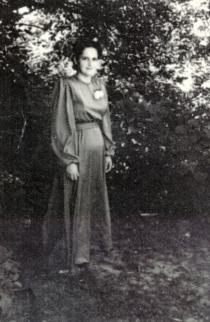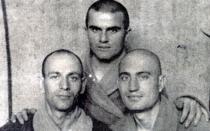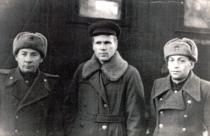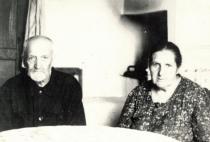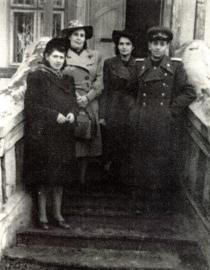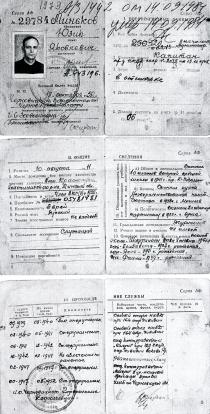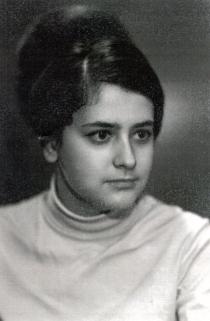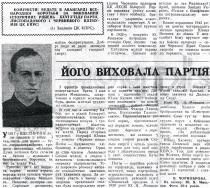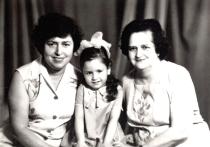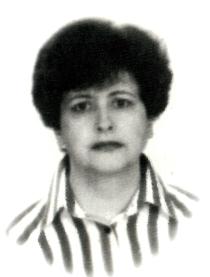My father's older sister Beilia Minkova (on the right) and her friend in 1924 in Orsha.
My grandparents had eight children. Only four of them survived the war. My father's brother Aron, born in 1895, was their oldest child. The next one was Zina, born in 1897. My father, Yuzik Minkov, was born in 1911. The youngest, Tania, was born in 1915. They were the only ones whom I knew personally. My father had three more sisters: Beilia, born in 1900, Tzypa, born in 1905, and Fania, born in 1909, and one more brother: his name was Pinia and he was born in 1907.
My grandparents lived in Krasnoluki. My grandfather was a farmer. He kept a few cows. He sold kosher dairy products. My grandmother sold these products at the market twice a week. She had Jewish and Ukrainian clients.
There were only a few Jewish families in Krasnoluki. There was no synagogue or cheder in town. My father and his sisters studied at the Russian lower secondary school in Krasnoluki. They spoke fluent Russian with no accent.
My grandparents weren't religious. My father's cousin, who lived in Leningrad, told me about them. She remembered them very well. They observed some traditions, of course. My grandmother cooked traditional food. They celebrated Pesach. My father remembered his father bringing home big bags of matzah before Pesach. One of the Jewish families living in Krasnoluki made matzah. My father and his brothers weren't circumcised; they didn't have bar mitzvah, which is one of the basic rules in Jewish religion. My father's family spoke Yiddish.
In 1919, during the Civil War, a military unit of the White Guards came to town. All Jews, including my grandmother and her children hid, but my grandfather recalled that he had left his cowshed open. He went back out to lock it and was beaten to death by the Whites. Shortly after his death my grandmother died. After their parents died my father's sisters and brothers moved to Orsha one after another and got married.

